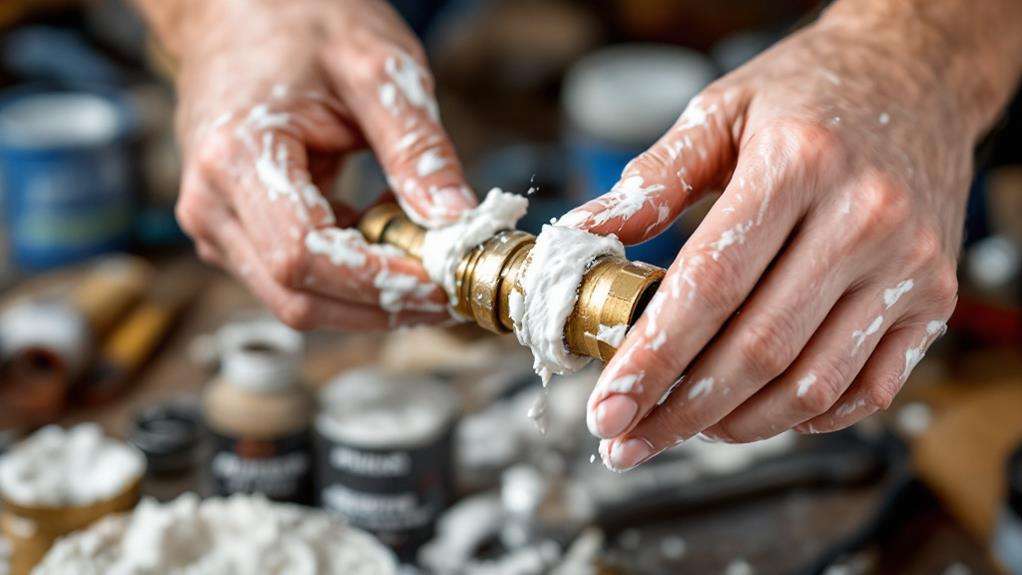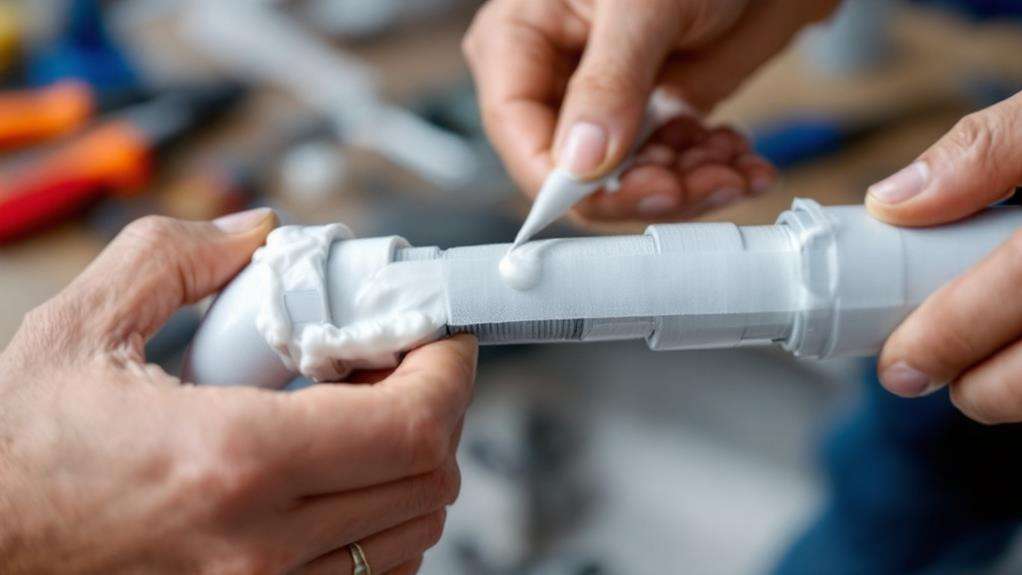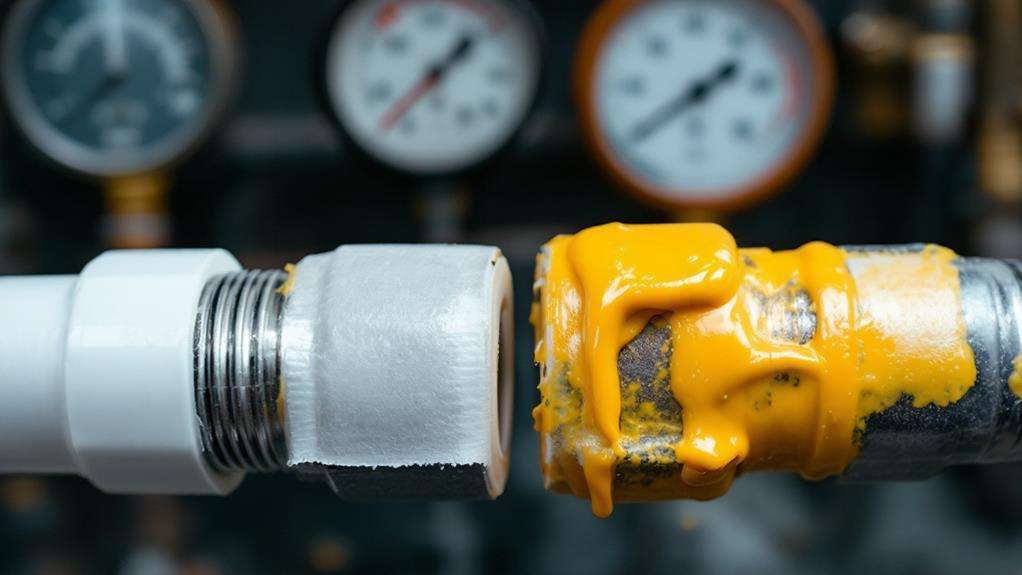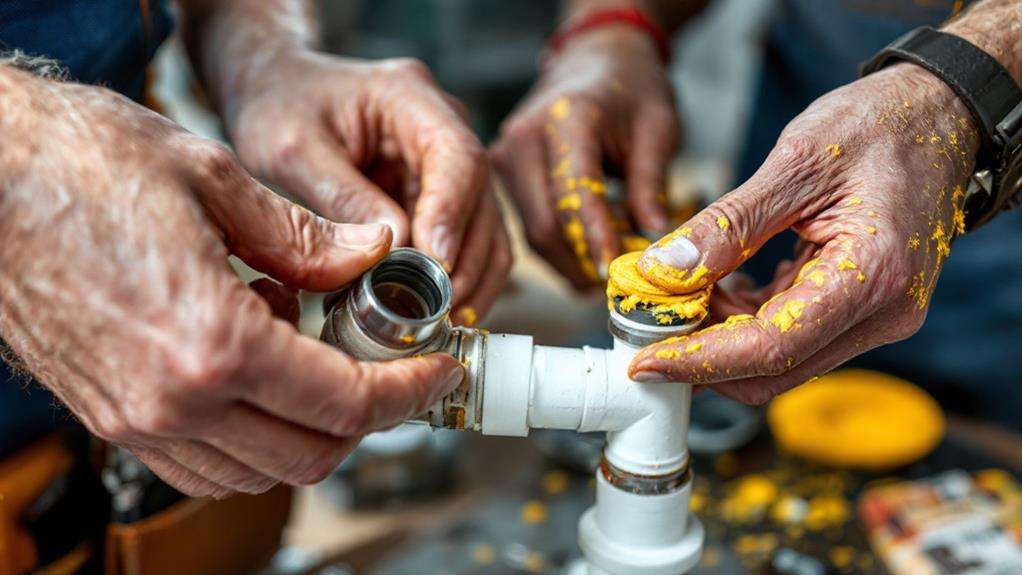Pipe Joint Compounds vs. Teflon Tape: Which Is Better?
When deciding between pipe joint compounds and Teflon tape, consider your specific plumbing needs. Pipe joint compounds create stronger, more permanent seals and work well for high-pressure applications. They're also compatible with various materials and offer better protection against corrosion. Teflon tape, on the other hand, is easier to apply, provides lubrication during assembly, and is more suitable for temporary joints. It's also more budget-friendly and readily available. Your choice should depend on factors like pressure requirements, temperature conditions, and the expected lifespan of the connection. Understanding the pros and cons of each option will help you make the best decision for your project.
Understanding Pipe Joint Compounds
Pipe joint compounds, commonly known as pipe dope, are essential tools in plumbing and pipefitting. These putty-like adhesives are applied to thread ends and the inside of connection pieces to create a strong, airtight seal. Unlike Teflon tape, pipe joint compounds offer a more permanent solution for pipe connections.
When you use pipe dope, you'll notice that it hardens as the solvent carrier evaporates. This process results in a more durable seal compared to Teflon tape. The versatility of pipe joint compounds makes them compatible with various pipe and fitting materials, allowing you to utilize them in a wide range of applications.
Professionals prefer pipe joint compounds, also called thread compounds, for their superior sealing capabilities. They're particularly effective in situations where leak prevention is critical, such as natural gas lines. While applying pipe dope can be messier than using Teflon tape, the benefits outweigh this minor inconvenience. You'll achieve a stronger, more reliable seal that's better suited for permanent connections. By choosing pipe joint compounds, you're opting for a solution that provides enhanced protection against leaks and secures a more secure pipe connection.
Teflon Tape Explained
While pipe joint compounds offer sturdy sealing solutions, Teflon tape presents a different approach to pipe connections. Also known as PTFE or thread seal tape, this nonstick, stretchy film comes in spooled rolls similar to adhesive tape. You'll find it useful for sealing threaded pipe joints by clogging thread paths, though it's not a true sealant.
When using Teflon tape, you'll need to wrap it carefully in the direction of the pipe threads to prevent tearing. It's a quick and easy solution that provides lubrication for assembly without damaging threads. You'll appreciate its cost-effectiveness and wide availability for various plumbing applications.
However, it is crucial to recognize that Teflon tape isn't recommended for permanent connections due to the risk of tape fragments entering the system. It's best suited for temporary, non-permanent joints. You'll find different thicknesses available for varying applications, allowing you to choose the right option for your specific needs. While Teflon tape offers a convenient solution for many scenarios, remember that pipe joint compound is often preferred for permanent connections due to its stronger, more durable seal.
Pros of Pipe Joint Compounds

Offering superior sealing capabilities, pipe joint compounds stand out as the preferred choice for permanent connections. When you're looking for a sturdy and long-lasting solution, this sealant outperforms Teflon tape in several ways. Pipe joint compounds create a stronger, more permanent seal by hardening as the solvent carrier evaporates, ensuring an airtight connection that can withstand the test of time.
One of the key advantages of pipe joint compounds is their versatility. They're compatible with a wide range of materials, including steel, brass, and plastic, making them suitable for various plumbing applications. This flexibility allows you to use a single product across different types of pipes and fittings, streamlining your work process.
Application of pipe joint compounds is also more straightforward and less messy than wrapping Teflon tape around threads. You can easily apply the compound by hand or with a brush, ensuring even coverage and a secure seal. This method not only saves time but also reduces the risk of improper application.
Lastly, pipe joint compounds offer a cost-effective solution for creating secure, long-lasting pipe connections. Their durability and effectiveness make them a worthwhile investment for your plumbing needs.
Advantages of Teflon Tape
Despite the advantages of pipe joint compounds, Teflon tape holds its own with several unique benefits. When working with threaded pipe and pipe fittings, you'll find that Teflon tape is incredibly quick and easy to apply without creating a mess. This time-saving feature can be especially useful when you're working on multiple connections or in tight spaces.
One of the key advantages of Teflon tape is its ability to provide lubrication for easy assembly without damaging the threads. This guarantees a smooth connection while maintaining the integrity of your pipe fittings. You'll also appreciate how easy it is to find, carry, and store Teflon tape. Its compact size makes it a practical option for both professional plumbers and DIY enthusiasts.
Teflon tape is adequate for many plumbing applications, making it a versatile choice for various projects. Whether you're working on water lines, gas lines, or other threaded connections, you'll find that Teflon tape often gets the job done effectively. Lastly, it's an affordable solution, allowing you to complete multiple projects without breaking the bank. This combination of convenience, effectiveness, and cost-effectiveness makes Teflon tape a popular choice for many plumbing tasks.
Application Techniques

Now that we've investigated the advantages of both sealant options, let's focus on how to apply them correctly. When using Teflon tape, you'll want to wrap it carefully around the pipe threads in the direction they're oriented. This technique prevents tearing and necessitates an effective seal. Be sure to follow the manufacturer's instructions for the best results.
For pipe joint compound, you'll need to apply it generously to both the thread ends and the inside of the connection pieces. This allows the compound to fill any tiny gaps between the mating surfaces. However, be cautious not to use too much, as it can make future disassembly challenging. Conversely, using too little may result in an inadequate seal.
Regardless of which method you choose, proper application is indispensable. Improper techniques can compromise the integrity of your pipe connection and lead to potential leaks. Always pay close attention to the manufacturer's guidelines for both Teflon tape and pipe joint compound. By following these instructions and applying the sealants correctly, you'll ensure optimal performance and a secure, leak-free connection in your plumbing system.
Material Compatibility
Compatibility is an essential factor when choosing between pipe joint compounds and Teflon tape. When working with various pipe materials, you'll need to ponder how each sealant interacts with your specific system components.
Pipe joint compounds offer broad compatibility with many materials, including metals, plastics, and rubbers. However, some compounds containing petroleum distillates can potentially damage plastic pipes and fittings, such as PVC, CPVC, and ABS. This is particularly significant to reflect on in water systems where plastic components are common.
Teflon tape, on the other hand, is an inert, non-reactive material that's safe to use on a wide range of pipe and fitting materials. It's specifically designed for non-reactive materials like plastics and soft metals, making it a more secure choice for plastic pipes and fittings. When you're working with water systems that incorporate these materials, Teflon tape can be a reliable option.
For specialized or high-performance piping systems, it's essential to consult manufacturer recommendations or seek professional advice. This guarantees you select the appropriate sealant for your specific application, avoiding potential chemical reactions or component degradation. By carefully considering material compatibility, you'll make an informed choice between pipe joint compounds and Teflon tape.
Pressure and Temperature Considerations

When selecting between pipe joint compounds and Teflon tape, pressure and temperature considerations play an essential role. In high-pressure applications, you'll find that pipe joint compounds, also known as Pipe Thread Sealant, are generally more suitable. They create a stronger, more durable seal compared to polytetrafluoroethylene (PTFE) tape, making them the preferred choice for plumbing systems operating under high pressure, such as natural gas lines.
Temperature is another pivotal factor to ponder. Teflon tape may become brittle and fail at extremely high temperatures, while pipe joint compounds can withstand a wider range of temperatures. This makes pipe joint compounds more versatile in various applications where temperature fluctuations are commonplace.
When dealing with corrosive fluids, pipe joint compounds offer better protection. Teflon tape is more susceptible to deterioration when exposed to certain chemicals, potentially compromising the seal's integrity over time.
To guarantee a reliable and long-lasting seal, you should carefully evaluate the specific pressure and temperature requirements of your plumbing system. By choosing the appropriate sealant based on these factors, you'll minimize the risk of leaks and ensure peak performance of your plumbing system.
Longevity and Durability
Building on the pressure and temperature considerations, the longevity and durability of pipe thread sealants are key factors in choosing between pipe joint compounds and Teflon tape. When it comes to long-term reliability, pipe joint compounds have a clear advantage over Teflon tape.
As a chemical sealant, pipe joint compounds create a stronger, more permanent bond between pipe threads. This type of sealant hardens over time, forming a durable seal that can last the lifetime of the connection. You'll find that pipe joint compounds are more resistant to environmental factors, such as extreme temperatures and chemical exposure, which can compromise Teflon tape seals.
While Teflon tape serves as a thread lubricant and provides a temporary seal, it may degrade over time and require reapplication, especially in high-pressure or vibration-prone environments. In contrast, properly applied pipe joint compounds offer a tighter, more secure seal that's less likely to leak or loosen.
For permanent, high-pressure, or critical plumbing applications, you'll want to opt for pipe joint compounds. They provide a more reliable, long-lasting seal compared to Teflon tape, which is better suited for temporary or low-pressure connections.
Cost Comparison

A cost comparison between pipe joint compounds and Teflon tape reveals significant differences in initial investment. Teflon tape is generally more budget-friendly, with prices ranging from $1 to $5 per roll, while pipe joint compounds can set you back $5 to $15 per tube. However, it's indispensable to ponder the long-term cost implications when choosing between these two types of sealants.
When evaluating the cost-effectiveness of Teflon tape versus pipe joint compounds, consider the following factors:
- Project scale: For large commercial or industrial projects, the cost difference may be less significant compared to the overall budget.
- Number of connections: Teflon tape can lead to substantial savings in projects with multiple threaded connections.
- Sealing effectiveness: Pipe joint compounds' superior sealing abilities may prevent costly leaks and repairs in the future.
- Application-specific requirements: The choice should align with the project's specific needs and expected lifespan.
Ultimately, while Teflon tape offers immediate cost savings, pipe joint compounds may provide better value in the long run due to their enhanced sealing capabilities. It is imperative to weigh both the upfront costs and potential long-term savings when making your decision.
Professional Recommendations
Professional plumbers and industry experts have clear preferences when it comes to choosing between pipe joint compounds and Teflon tape. For permanent pipe connections, they often favor pipe joint compound, also known as pipe dope, over Teflon tape. This preference stems from pipe dope's superior sealing capabilities and compatibility with various pipe materials.
However, when it comes to temporary connections like faucets and hose bibs, Teflon tape is the go-to selection. It's ideal for fittings that may need to be disassembled in the future. For natural gas lines, pipe joint compound is typically recommended due to its ability to withstand high pressures and corrosive gases.
When deciding between tape and pipe dope, you should consider factors such as pipe material, connection permanence, pressure requirements, and local building codes. It's necessary to consult a licensed plumber or refer to manufacturer recommendations for specific applications. This guarantees you're using the appropriate sealant for your plumbing needs.
